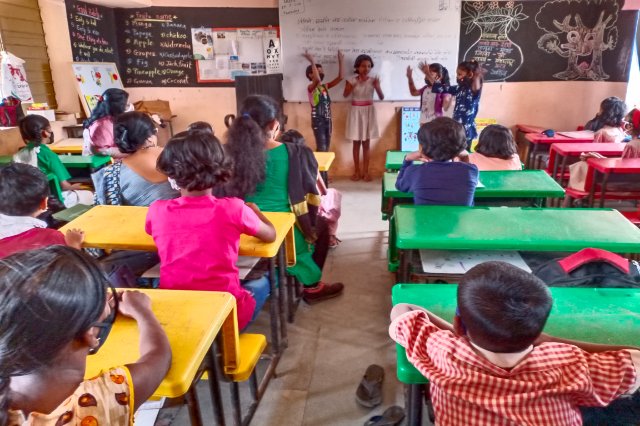Adolescents Development
Mainstream Social Welfare FoundationAdolescence is a period when the intellectual, physical, social, emotional and all the capabilities are very high, but, unfortunately, most of the adolescents are unable to utilize their potential to maximum due to various reasons. They face many emerging issues such as global warming, famines, poverty, suicide, population explosion as well as other issues like alcoholism, drug abuse, sexual abuse, smoking, juvenile delinquency, anti-social acts, etc. that have an adverse effect on them and others too, to a large extent. The cut-throat competition, unemployment, lack of job security, etc. are some of the major concerns for the educated and as a result, they are caught in the mad race. This new challenge requires immediate and effective responses from a socially responsible system of education. ‘Education’ is important, but education to support and live life better is more important. It has been felt that life skills education bridges the gap between basic functioning and capabilities. It strengthens the ability of an individual to meet the needs and demands of the present society and helps in dealing with the above issues in a manner to get desired behavior practical. Imparting life skill training through inculcating life skill education will help youth to overcome such difficulties in life.

Adolescents Session on Life Skill Education
Life skill has been classified into three broad categories:
- Thinking skills: Thinking skills are the skill that enhances the logical faculty of the brain using an analytical ability, thinking creatively and critically, and developing problem-solving skills and improving decision-making abilities.
- Social skills: Social skills include interpersonal skills, communication skills, leadership skills, management skills, advocacy skills, co-operation and team building skills, etc.
- Emotional skills: Emotional skills, involves, knowing and being comfortable with oneself. Thus, self-management, including managing/coping with feelings, emotions, stress and resisting peer and family pressure.
Come, join our mission to make Every Last Child of India RESILIENT!
Over the years, we have faced a multitude of issues but undeterred, we have devised several solutions that help us continue sharing the gift of Empowerment with underprivileged Adolescent’s.
THE PROBLEM
Adolescents Session on Life Skill Education
Adolescence, an important stage of growth and development, marks the period from childhood to adulthood. It is characterized by rapid physiological changes and psychosocial maturation. They are strongly influenced by their peers and the outside world in general. So our trust has organized this session to strengthen them.
How to Think Sessions for Children
Counselling of children presents unique ethical considerations. Such consideration often there is no clear solution. Indeed, similar ethical considerations may require different approaches. Depending on the unique characteristics of the baby, family, and circumstances. Talking to a caregiver can also be a helpful source of guidance. In this case, we aim for some ethical considerations that we feel when giving advice to children.
Karate for Self-Defence Children Classes
Exercise is great for every kid. But kids who learn and think differently can have a hard time finding a sport that suits them. Find out why martial arts might be a good fit for your child. Martial arts are an ancient practice from Asia. They were originally meant for self-defence. Today, lots of people do martial arts to build physical and mental strength.
Environment Protection – Climate Change
Tree plantation is significant because it is linked to our basic need for good food to eat and clean air to breathe. Aside from these necessities, they preserve biodiversity, conserve water, preserve soil, and control climate, among other things.Trees help to combat global warming by absorbing carbon dioxide, removing and storing carbon while releasing oxygen back into the air. They also reduce wind speeds and cool the air as they lose moisture and reflect heat upwards from their leaves. It’s estimated that trees can reduce the temperature in a city by up to 7°C. Other environmental benefits include the fact they help to prevent flooding and soil erosion, by absorbing thousands of litres of stormwater.From birds and insects, to bats and squirrels, trees provide a canopy and a habitat for many species of wildlife. But they don’t just act as a home for wildlife; the fruits from trees provide food for them too. Trees help to improve air quality by intercepting and trapping dust and other pollutants from the air. The shade of trees also provides a useful barrier to harmful ultra-violet radiation from the sun. But it’s not just our physical health that benefits, our mental health does too. When surrounded by trees or taking part in nature-based activities, stress and depression levels can be significantly reduced.
So, as you can see, humans, animals and the environment depend upon trees for survival. Therefore, as deforestation continues, we must put back what we’re taking away. By planting more trees, it will contribute to global reforestation efforts, restoring lost forests, repairing damaged ecosystems and mitigating climate changes.
So,we appeal to join for planting the trees around you where you live.
